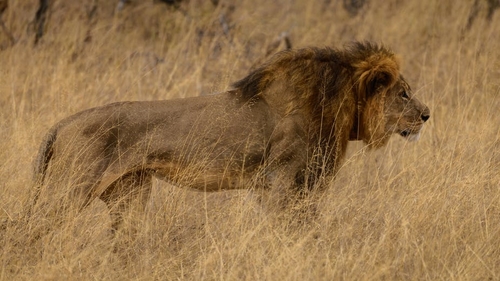
This article was originally published by New Zealand Herald, on 3 August 2018 by Muchazondida Mkono.
It's just over three years since a lion was shot in Zimbabwe by Walter Palmer, a dentist from Minnesota in the US, in a drama that became known as "Cecilgate".
The death sparked heated debates around the world about trophy hunting. And the fallout was hailed as a turning point for the wildlife tourism industry because trophy hunting was shown to be morally untenable for many, particularly those in developed countries.
The incident became a teachable moment. People were made aware of Africa's wildlife conservation crises and the declining lion numbers — from more than 200,000 a century ago to about 20,000.
The issue of canned hunting, where wild animals are bred on farms to be shot by rich foreign trophy hunters, became a topic of contention. Poaching was highlighted as another huge problem.
To understand the full impact of the incident and its fallout, let's look at Cecil's legacy — in other words what's happened since he was shot.
The outcry led to some policy changes in developed countries. For example, the UK demanded that African countries improve their hunting practices as a condition for continued support, while France banned lion trophy imports.
Companies also took action: a number of airlines, led by Virgin's Sir Richard Branson, pledged not to carry hunting trophies from Africa.
But the Cecil movement didn't lead to deep-seated changes. The sad reality is that trophy hunting persists in many parts of Africa, as does the even more abhorrent canned hunting. In the southern Africa region, Botswana is the exception. But its ban on trophy hunting was imposed well before Cecilgate. Hunting companies are still thriving.
The Cecil movement has not resulted in any tangible contributions to wildlife conservation in Africa. Conservation remains under-funded, poaching is rife, and lion numbers are still on the decline.
There are a few reasons for this.
Lack of understanding
The Cecil movement showed a lack of understanding — or disregard — of the different
perspectives in countries that are home to lions.
Professor David MacDonald, director of the Wildlife Conservation Research Unit at Oxford University, and his co-authors recently pointed out there were very divergent views about lions in the wealthy West compared with people who live near them.
They asked: "Who has the right to make decisions about trophy hunting? How should the weight of opinions held on lion hunting in countries without lions, such as the US, be ranked against the opinions held in African countries where lions occur (and where the financial consequences of a cessation of trophy hunting might bite the hardest)?"
These divergent views played out after Cecil's death when it became apparent there was no grassroots support for a hunting ban.
In response to the Western media frenzy around Cecilgate, Africans felt the West cared more about animals than people.
Zimbabwean-born Goodwell Nzou, then a PhD candidate at Wake Forest University, put this aptly in the New York Times.
"In Zimbabwe, we don't cry for lions. In my village, surrounded by wildlife conservation areas, no lion has ever been beloved or granted an affectionate nickname ...
"We Zimbabweans are left shaking our heads, wondering why Americans care more about African animals than about African people ..."
Crucially, the Cecil movement also failed to propose an economically viable alternative to trophy hunting. Alternatives such as photographic tourism have not generated enough revenue to match the hundreds of millions Africa receives from trophy hunting annually.
In addition, hunters remain unrepentant. Walter Palmer himself still posts defiant tweets: I just wanted to say I killed "a frican lion".
Read the full article at New Zealand Herald.



